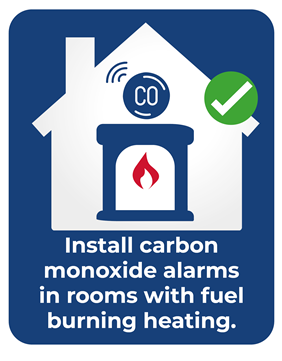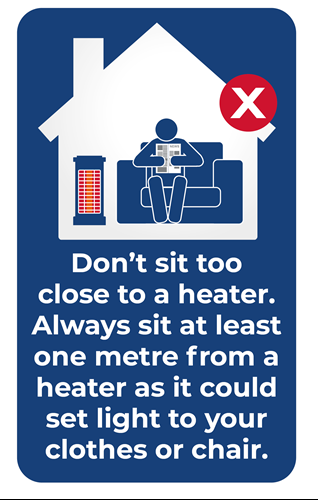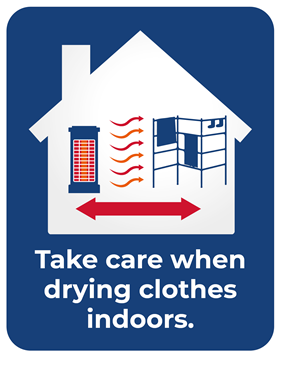You may have had to change the way you heat your home. Follow our advice on using heating appliances to stay safe.
Using portable heaters
Always read the instructions and understand how to use appliances safely, checking they are in good working order.
- Check portable heaters are not subject to a safety notice or product recall at https://www.gov.uk/guidance/product-recalls-and-alerts [external link opens in new window]
- Don't place portable heaters where they will block your escape route or where they might be knocked over
- Don't sit too close to a heater. Always sit at least one metre away from a heater as it could set light to your clothes or chair
- Keep heaters away from flammable materials such as paper, curtains, furniture or bedding
- Plug electric heaters into a wall socket - not an extension lead
- Unplug heaters when you go out or go to bed
- Don't move a heater when it is turned on
- Only use gas or paraffin heaters in well-ventilated areas, having checked that they are suitable for indoor use. Make sure a carbon monoxide alarm is installed in the same room
- Take care when drying clothes indoors - never dry clothes directly on or in close proximity to a heater or open fire

Using open fires and woodburning stoves
Open fires and woodburning stoves can be a cost effective way of heating your home. Follow our advice to reduce the risk of a fire or carbon monoxide (CO) incident in your home.
- Always use a fire guard with an open fire to protect against flying sparks from hot embers
- Make sure embers are under control and properly put out before you go to bed
- If you are re-opening an old fireplace you will need to consider building regulations. Get flues and chimneys checked and swept to prevent chimney fires and CO poisoning
- Use the correct fuel for your fire. Burning household waste or material such as treated wood can cause toxic fumes in the home and is a fire risk
- Store fuels for open fires and woodburning stoves away from the appliance so they don't catch fire
- Take care when drying clothes indoors - never dry clothes directly on or in close proximity to a heater or open fire
- Fit a CO alarm in all rooms with fuel burning appliances or ensure your landlord has provided CO alarms as required by regulation
Chimney safety
Did you know your chimneys should be swept according to the type of fuel being used?
- Smokeless fuel - at least once a year
- Bituminous coal - at least twice a year
- Wood - quarterly when in use
- Oil - once a year
- Gas - once a year by a Gas Safe chimney sweep


